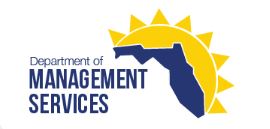Florida budget proposal includes funding for current radio system, tower leases
Florida state lawmakers have agreed to allocate $37.5 million in funding to support initiatives associated with the Statewide Law Enforcement Radio System (SLERS) during the upcoming fiscal year, including $12.5 million to pay for tower leases and $1 million to replace radio equipment, according to a summary of the appropriations bill.
Both the Florida Senate and House overwhelmingly supported SB 2500, known as the “General Appropriations Act.” Under Florida law, the Legislature is required to wait 72 hours before conducting a final vote on the budget, which is expected to happen on Friday, the last scheduled day of this year’s regular session.
“We plan on being out of here on time,” House Speaker Chris Sprowls said while responding to questions from members of the media on Tuesday. Sprowls said the Legislature plans to meet a special session beginning on May 17, when lawmakers are expected to consider a gambling compact that Gov. Ron DeSantis signed with the Seminole Tribe that is projected to add $2.5 billion annually to the state’s revenues during the next five years.
According to a budget summary of SB 2500, there are four line items associated with SLERS in the Department of Management Services (DMS) budget for the 2021-22 fiscal year:
- $19 million for SLERS contract payment;
- $5 million for SLERS contract services and staff augmentation;
- $12.5 million for SLERS tower leases; and
- $1 million for SLERS radio-equipment replacement.
The proposed $19 million contract-payment appropriation is similar to the payment made to current SLERS vendor L3Harris for operating the existing statewide LMR system that uses aging EDACS EA technology. Earlier this month, a key revenue source to support the SLERS was renewed for another five years instead of being allowed to sunset when the current SLERS contract agreement expires at the end of June.
DMS officials repeatedly have stated that the existing SLERS will be available to law-enforcement agencies beyond the expiration date of the current deal, noting that state officials are in the process of negotiating a multi-year agreement with L3Harris to keep SLERS operational. State officials had not announced a new SLERS extension with L3Harris as of the posting of this article.
Funding the replacement of aging radio gear that operates on the SLERS network has been a priority for many state agencies for the past year, so the proposed $1 million for this purpose should be welcome. What is not clear is whether this amount will be enough, as the Florida Highway Patrol previously requested $4.18 million to pay for replacement radios that would be used by its personnel, and other agencies submitted radio-replacement requests.
In addition to seeking a new contract agreement with L3Harris to extend the life of the existing SLERS network, DMS officials have taken initial steps to procure SLERS-2. SLERS-2 is the proposed new statewide network that is expected to provide mission-critical communications via “P25 Phase 2 delivery methodology,” as well as integrate “with broadband network and push-to-talk services,” according to the Invitation to Negotiate (ITN) document released on Feb. 16.
Vendors are required to submit their bids by May 11, with the state negotiation team slated to recommend an award to a vendor on Nov. 9, the ITN states. The anticipated contract start date is Dec. 14, according to the procurement document.
This is the second time the state has tried to secure SLERS-2. The first ended in January 2020, when DMS announced that it ended talks with Motorola Solutions after the LMR giant declined to sign a contract based on the terms of its bid, according to a state official. At the time, Florida DMS Secretary Jonathan Satter wrote in a letter to Motorola Solutions that Florida DMS would “move toward the new procurement of a next-generation system”—language reiterated in today’s statement from DMS.
Earmarking $12.5 million for tower leases—as stipulated in the state budget proposal—could improve the chances of this SLERS-2 procurement process being successful. Indeed, one problematic issue in DMS negotiations with Motorola Solutions was a dispute surrounding access to towers owned by L3Harris. DMS officials have acknowledged that they have been in discussions to resolve the matter with L3Harris, but no agreement has been announced thus far.
Although the tower dispute was a problem, sources familiar with the failed Motorola Solutions talks indicated that biggest sticking point in the negotiations was a “termination for convenience” clause, which would let the state back out of the potential deal whenever it wanted with little advance notice. All vendors seeking the P25 contract were required to accept this condition during the bidding process, but Motorola Solutions would not accept it as part of the contract with the state, according to a letter from Satter.
Overall, the state budget package being proposed totals $101.5 billion, a 10% increase compared to the $92 million budget for the current fiscal year that ends on June 30. This is markedly different than the budget cutting that most experts predicted the state would have to do as a result of negative economic impacts associated with the COVID-19 pandemic.
Instead, total revenue sources in the state were much better than expected during the past year, bolstered largely by an influx of new residents moving from other states, a rebound in tourism, policies to remove many COVID-19 restrictions from businesses, and a willingness to accept $6.7 billion in federal pandemic-related funding—something legislative leaders previously said they would not rely on, according to multiple reports.

















